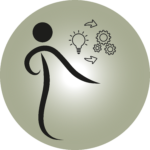A palette of patterns for transformative dialogue
This palette contains skills, methods, attitudes or meta-skills and a basic dialogic framework or process logic. The skills, attitudes and framework provide you with most of what you need in order to design and manage collaborative processes were dialogue is used. Methods are ways of using the skills in a specific way and presuppose a particular attitude and process logic.
Where to start? You could start pretty much anywhere. You will see that many of the patterns are interlinked. There are references to linked patterns that you can explore. At some point, however, you might want to understand something of the background or context to many of these patterns. This you will find in the background section.
GUIDING PRINCIPLES
All the design elements are based on a set of guiding principles. In moments of decision – from choices in the moment to important decisions that affect hundreds or thousands of people in society – there is always a space where we can reflect. This space between what we observe and the action we take can make the difference between a good decision and a poor one.
If you are interested in the basic principles that underlie a different way of thinking about decision-making and collaborating for the good of society, they are briefly described here.
SKILLS
A skill is the ability to do something. Skills are learned and developed through practice. At first, you will need to focus on the details. Later the skills become a part of the way you act. You will adapt the skills you learn to fit your personality and style.
Here you will find a number of skills that have proven helpful in practicing and facilitating dialogue.
META-SKILLS
Meta-skills make up the attitude you bring to dialogue, whether you are a participant, a facilitator or a mediator. Without the meta-skills, your skills have less impact and can even be harmful. Meta-skills are the most important aspect of facilitating dialogue.
Ultimately, you will develop your own skills and methods, but this cannot be done without clear meta-skills.
FRAMEWORK
There is a basic framework that works on all levels of dialogue. We call it the dialogic way or a process logic for dialogue. It is a framework for novices and experts alike and has a number of phases.
The basic idea is universal: avoiding the instinctive shift from observation to action by deepening your understanding of a problem.
METHODS

Methods can be seen as a series of patterns used for a specific purpose. They are simply ways to do things that are often needed. They can be done step by step. Methods can also be adapted.
Here you will find a number of useful methods such as how to start off meetings, how to make decisions with a group, breaking a deadlock in a discussion and how to avoid escalation of conflict.





